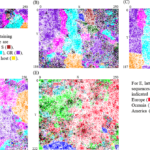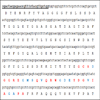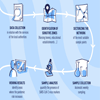
 Title: Time-Series Trend of Pandemic SARS-CoV-2 Variants Visualized Using Batch-Learning Self-Organizing Map for Oligonucleotide Compositions Author: Takashi Abe, Ryuki Furukawa, Yuki Iwasaki, Toshimichi Ikemura URL: http://doi.org/10.5334/dsj-2021-029 |
|
 Title: Open Access and Data Sharing of Nucleotide Sequence Data Title: Open Access and Data Sharing of Nucleotide Sequence DataAuthor: Masanori Arita URL: http://doi.org/10.5334/ds,j-2021-028 |
|
 Title: Public Health Benefits and Ethical Aspects in the Collection and Open Sharing of Wastewater-Based Epidemic Data on COVID-19 Title: Public Health Benefits and Ethical Aspects in the Collection and Open Sharing of Wastewater-Based Epidemic Data on COVID-19Author: Ryo Honda, Michio Murakami, Akihiko Hata, Masaru Ihara URL: http://doi.org/10.5334/ds,j-2021-027 |








